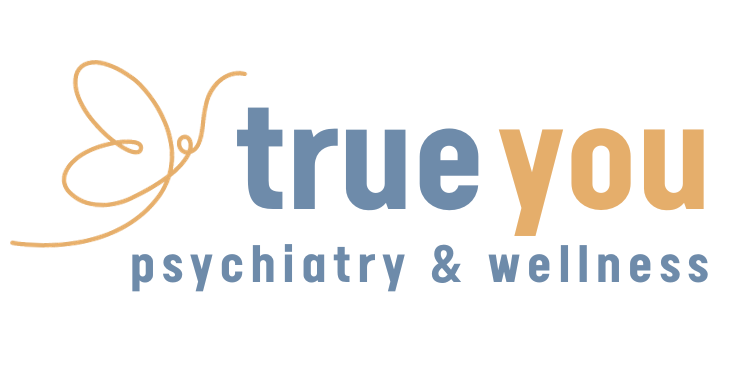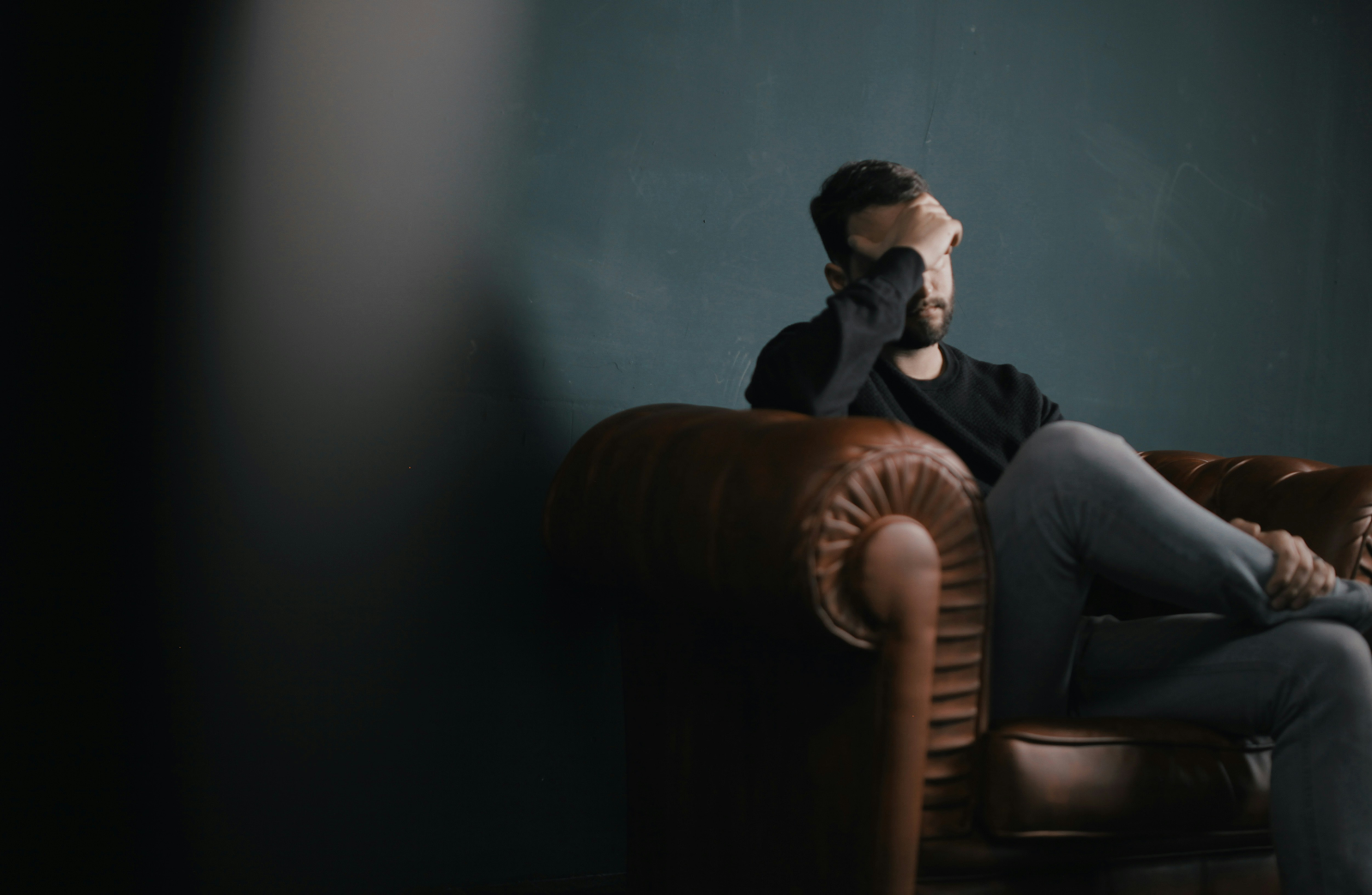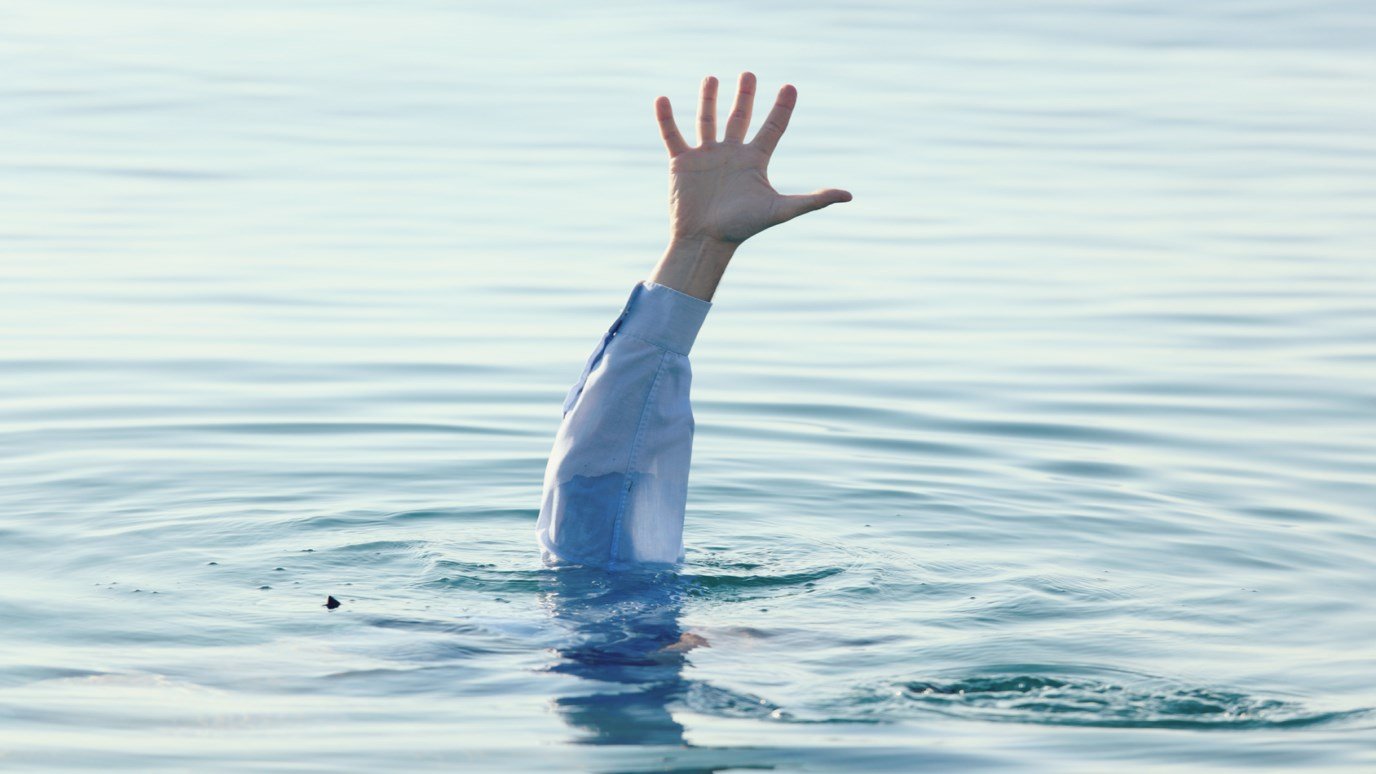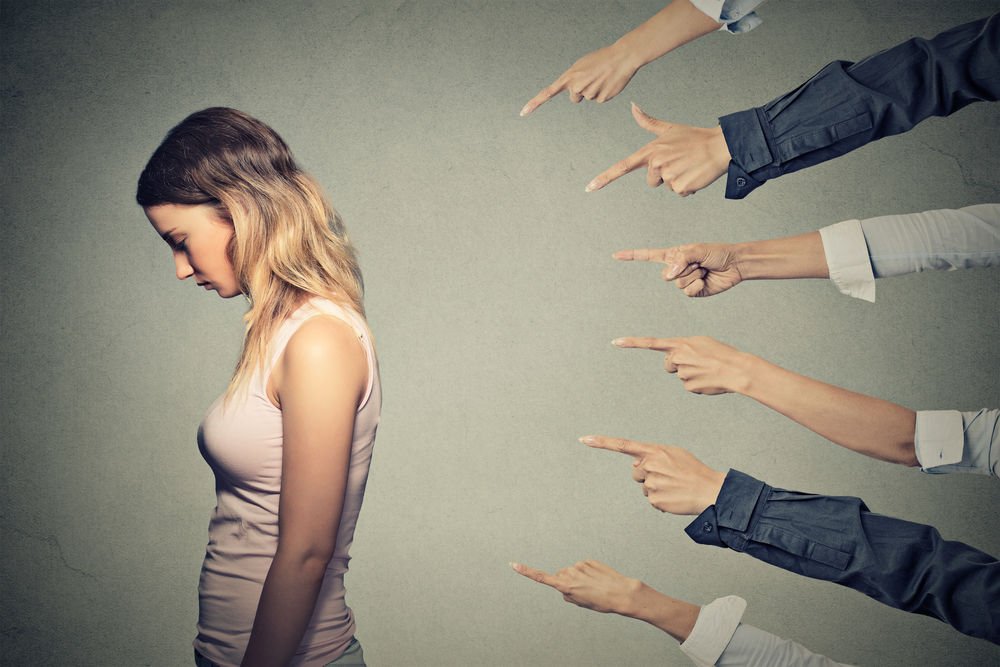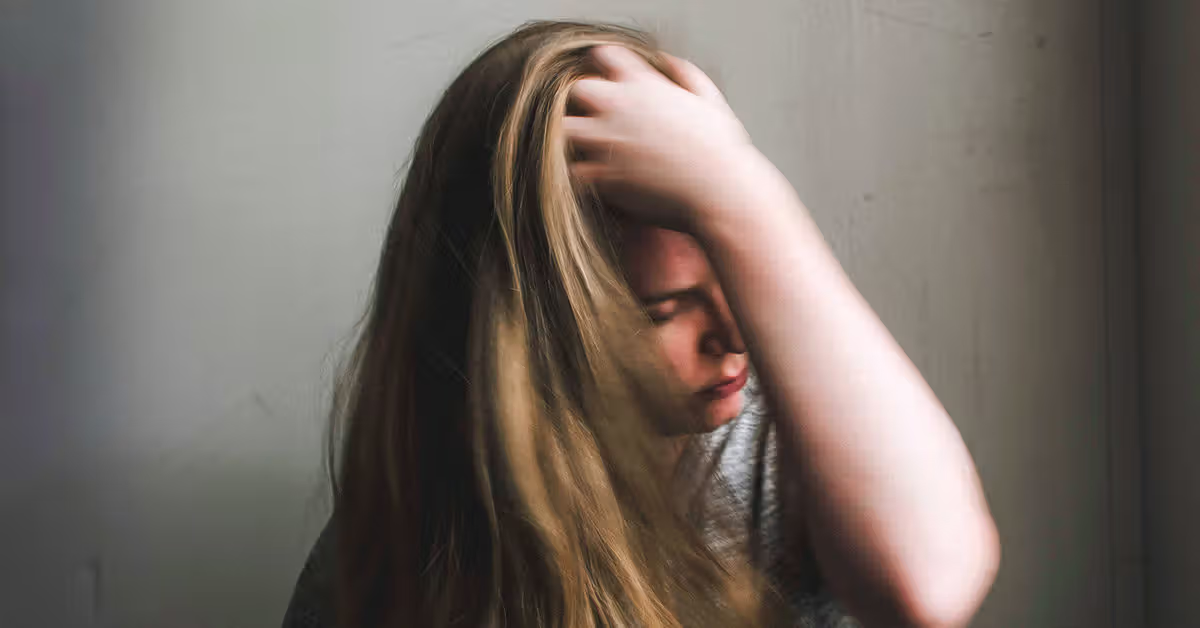My Depression Is Getting Worse - 10 Signs
“Getting better from depression demands a lifelong commitment. I’ve made that commitment for my life’s sake and for the sake of those who love me,” says Susan Polis Schutz, a poet and a depression survivor.
The above is a powerful statement that resonates with millions of people globally.
Specifically, an estimated 5% of all adults experience depression.
In the U.S., approximately 21 million adults, representing 8.4%, have gone through a major depressive episode.
Meanwhile, more than 1 in 10 U.S. youth is currently experiencing a depressive disorder that significantly impedes conduct at school or work, home, and social life.
These statistics are not only frightening but also show the increased frequency of this mental health condition.
If you or someone feels that "my depression is getting worse," it is critical to take note and take action immediately.
This article talks about 10 critical signs your depression is getting worse and how to manage the condition.
Remember, recognition is the beginning of the process of recovery. Rest assured we are starting this recovery journey.
Rising Depression in Different Age Groups (It's not only you!)
The rates of depression have been increasing over the past few decades.
Many reports indicate that it occurs more commonly in adolescents and young adults.
Over the past decade, the rate of persons reporting depression indicators has increased by 63%.
According to a 2019 report by the CDC, this rate was seen as high among adolescents from 2005 to 2017.
A 2019 survey by the CDC also revealed that the rates of depression among U.S. people aged 18-25 increased by 52% between 2005 and 2017.
There are many possible reasons for the growing depression rating. But these are some prominent ones:
Increased stress and pressure – Many teens and young adults are stressed about academic and social life, finances, and the future. School and job insecurity only intensify such pressure with higher competition.
Overuse of social media – Frequent social media use is associated with poor mental health, depression, and anxiety. Social comparison and cyberbullying affect the level of self-esteem.
Lack of coping skills – Many teenagers and young adults lack the skills in emotional regulation and coping with failures. Without that, minor issues can easily lead to hopelessness.
Biological factors – Lifestyle worsens depression through sleep, diet, exercise schedule, or substance use that impacts brain chemistry.
The rise in depression, especially among youth, has significant societal costs. But it is not always a case where there's no solution!
Depression Types (Which One Do You Have)
Depression can take many forms.
The most common type is major depressive disorder, which is characterized by a persistent feeling of sadness, hopelessness, and loss of interest in usual activities.
Some key symptoms include:
Depressed mood most of the day, nearly every day
Markedly diminished interest or pleasure in activities
Significant weight loss or gain
Fatigue or loss of energy
Feelings of worthlessness or guilt
Diminished ability to think or concentrate
Recurrent thoughts of death or suicide
Other types of depression include:
Persistent depressive disorder - This involves a depressed mood that lasts for at least two years. The symptoms are less severe than major depression but still interfere with daily life.
Postpartum depression - This affects women after giving birth. In addition to depression symptoms, there may be excessive worrying about the baby. It can develop any time in the first year after delivery.
Seasonal affective disorder - This is characterized by depressive episodes that occur during the winter months when there is less natural sunlight. Symptoms include low energy, increased sleep and appetite, and weight gain.
REMEMBER: Ongoing symptoms for more than two weeks may signal clinical depression requiring professional help.
But before finding the solution, let's first uncover 10 signs of depression when you feel "my depression is getting worse."
10 Signs Your Depression is Getting Worse
Feeling Like You're Drowning (Increased Hopelessness and Despair)
As depression worsens, you may find yourself feeling hopeless that things will never improve. This leads to a profound sense of despair.
Hopelessness is a negative outlook on the future.
You may think things will never change or you will never feel better.
Despair, on the other hand, is a phenomenon characterized by malaise, sorrow, and a lack of drive. You may become consumed by negativity with no sight of it ever ending.
A study found that when patients felt feelings of hopelessness about their situation at admission and discharge, they suffered significantly more often from depressive symptoms.
Hopelessness and despair also influence Thinking and Behavior.
Despair will cause social isolation, reduce the desire to do basic things, and create a reluctance toward life which makes depression difficult to cope with.
Losing Interest in Everything (Changes in Pleasure and Motivation)
Another common sign that your depression is worsening is a loss of interest and pleasure in activities that used to bring joy. This is known as anhedonia.
Research shows that anhedonia is a core symptom of major depressive disorder.
Studies have also found that anhedonia is associated with more severe depression, longer depressive episodes, and poorer treatment outcomes.
Scientists believe that anhedonia may be linked to decreased motivation and reward processing in the brain.
Therefore, when you're depressed, you may stop enjoying hobbies, lose interest in spending time with friends, or no longer look forward to things you used to love.
Everything starts to feel pointless or numb.
Alone Time Feels Better, But Not Really (Social Withdrawal and Isolation)
As depression deepens, being with people becomes exhausting. It feels almost too much effort to get out of bed and think about getting the work done.
Declining to receive services, canceling at the last minute, and creating absurdities to avoid are big issues.
You feel it’s easy to spend the days alone and not get noticed.
Your depression makes it seem more comfortable, but isolation does weaken it.
Human interaction is a priority when it comes to mental health.
Without it, bad thoughts and feelings exacerbate.
The inward turn is as dark as the outside light. Isolating yourself removes several mood-increasing factors, such as laughter and collaboration.
Unfortunately, this also erodes one’s self-esteem.
Your Body is Talking, Are You Listening? (Changes in Sleep and Appetite)
When depression worsens, it often manifests physically in the form of sleep and appetite changes. Your body provides important clues that your mood is declining.
On the sleep front, you may notice:
Difficulty falling or staying asleep - Tossing, turning, and lying awake at night
Sleeping too much or oversleeping - Hard to get out of bed in the mornings
Disturbing dreams or nightmares - Your subconscious is extra active at night
Waking up early and unable to fall back asleep - Waking before your alarm goes off
Regarding appetite, some common signs include:
Loss of appetite - Food doesn't seem appealing anymore
Eating too little - Skipping meals or eating very small portions
Weight loss - Losing weight without trying due to lack of eating
Increased cravings for carbs or sweets - Seeking comfort from sugary foods
Weight gain - Eating for emotional reasons rather than hunger
Sleep and nutrition affect both physical and mental health.
Increased Feelings of Worthlessness and Guilt
When depression takes hold, negative thinking patterns often come along for the ride.
Your inner critic becomes amplified, telling you things like "you're worthless" or "nothing you do matters."
Guilt weighs heavily on your mind about perceived mistakes and flaws.
These distorted thoughts can feel like the absolute truth when you're depressed.
Can't Focus On Your Life
Once you are down, your mind is continually occupied by discouraging thoughts and emotions.
Indeed, it is impossible to focus when your mind is filled with recurrent awful news.
The ability to focus is also impaired if you continually have feelings of guilt, sadness, or lack of self-worth.
It often takes a lot of effort to concentrate all of one’s energy on a single mental task.
Thoughts Getting Darker (Increased Thoughts of Death or Self-Harm)
When depression worsens, thoughts of death, self-harm, or suicide can increase or become more frequent.
This is an extremely alarming sign and immediate help is needed.
Certain factors can increase the risk that someone with depression will start having suicidal thoughts. These include:
A prior suicide attempt or self-harm
Family history of suicide
Substance abuse
Access to lethal means like guns or medications
Extreme hopelessness and despair
Significant loss or trauma
Lack of social support
Severe anxiety, agitation, or sleep issues
If you or a loved one starts experiencing suicidal thoughts, it's crucial to reach out for help right away.
Your Irritability is High (Agitation and Restlessness)
One’s agitation, like their depression, can quickly escalate as his or her depression worsens.
It is as if your body remains in overdrive mode.
People increasingly afflicted with depression report feeling profoundly agitated.
They squirm internally and discover that they can no longer sit quietly.
This agitation can also result in an increased display of frustration or irritability.
The severity of agitation may cause one to become angrier faster.
Someone who is only mildly moved can respond to a small irritant with a huge display of anger.
He or she may drink more frequently and express annoyance at the people who care about him or her for doing trivial activities incorrectly.
Daily Struggles Feel Like Mountains
This increase in fatigue and loss of energy is directly related to worsening depression.
Simple chores become exhausting.
You may sleep more but still feel tired all the time.
Or you may toss and turn all night but still struggle to get out of bed in the morning.
Either way, you feel like you're dragging yourself through quicksand just to get through the day.
Going to work or school feels agonizing.
Socializing seems unthinkable.
Even fun hobbies lose their appeal.
Everything requires more effort than you can muster.
As depression digs deeper, the fatigue gets more extreme.
You may spend days in bed, unable to face basic self-care.
Or you may feel so weighed down that you can hardly peel yourself off the couch.
The world outside your home can feel impossibly far away.
Changes in Emotional Expression
Crying jags or a sudden inability to cry, both signify a shift in how you process emotions.
This can be a warning sign of worsening depression.
When deep sadness overwhelms, uncontrolled crying outbursts may erupt.
Conversely, mental health conditions due to worsen depression can numb your emotional response, leaving you feeling detached and unable to cry.
It happens even in situations that normally would trigger tears.
These fluctuations highlight a disruption in your ability to express emotions healthily. Hence, it potentially indicates a deepening depression.
Signs You Need Emergency Care For Depression
If your depression hits an all-time high and escalates to alarming and severe symptoms, you need emergency care. Warning signs of needing immediate emergency care include:
If you're at risk of hurting yourself or others
If you have suicidal thoughts with a plan to act
If you're unable to care for yourself or your dependents
If you have hallucinations, delusions, or detachment from reality
Help Prevent Future Depressive Episodes
Antidepressants can act as effective emergency care, but relying exclusively on medication for supporting your mental health may fall short.
Utilizing psychotherapy and other lifestyle changes can help prevent future episodes and help minimize the use of medication.
1) Therapy Approaches
Therapy can greatly help you with your worsening depression.
Some of the most effective approaches include:
Cognitive Behavioral Therapy: This approach mitigates negative thinking and teaches you how to turn dark thoughts into motivating ones. It teaches you how your thoughts, feelings, and actions influence each other.
Interpersonal Therapy: It considers family bonds and life changes, which shifts the mood changes in treatment. By improving social and communication skills, a person heals on the inside.
Mindfulness: These practices help maintain focus in the here and now to distract you from repetitive negative thinking. Various options include meditation, yoga, and breathing exercises, but all improve self-awareness and emotional control.
Support Groups: This approach can also be useful for a person who feels socially isolated. Senses of community and understanding provide mutual and valuable support and tips.
2) Lifestyle Changes
Improving your lifestyle can also really help with depression. Focus on the following:
Exercise: Attempt to get moving for at least 30 minutes a day, be it walking, jogging or swimming.
Healthy Eating: Consume lots of fruits, veggies, and whole grains, and cut back on sugary and processed foods.
Sleep Well: Target 7 – 9 hours of shut-eye each night and try to stick up with a consistent sleep schedule.
Manage Stress: Find ways to relax, such as meditation or deep breathing, and learn to say no to stuff that stresses you out.
Stay Connected: Spend some time with friends and family or join a support group to combat feelings of loneliness.
3) Develop a Support System
Do not underestimate the power of a good support system while you cope with increasingly intense depressive episodes.
Kind words from your loved ones can offer you comfort and assistance if you tell them what is going on.
Support groups are great because they allow you to connect with others who share similar experiences.
Your therapist is also available to offer you a safe place to talk and help you cope. Also, community resources frequently provide free or low-cost services.
4) Other Holistic Approaches
Mindfulness therapies, on the other hand, focus on meditation, breathing, and yoga training that encourage you to stay in the moment.
This will alleviate your stress and help you feel relaxed. You will be out of the negative thinking loop.
In the long run or while fighting against any worsening mental health disorders, these approaches, suggested by mental health professionals, will teach you all the coping skills that you will be able to apply regularly to stay independent in managing your depression.
You will be able to understand the triggers, stop negative thinking, take care of yourself, and ask for help.
Conclusion (There is Hope - You Are Not Alone)
"Depression can feel like a dark cloud that won’t lift, but remember, you are not alone.
There is hope,” says Dr. Giordano, a holistic psychiatrist who believes in a common-sense approach and incorporating natural ways to treat depression.
Dr. Giordano’s approach is not just about treating worsening depression symptoms, but about treating you as a whole person.
Taking any psychiatric medication on a daily basis can cause physiologic dependence. Reducing the dose too fast can lead to horrible withdrawal symptoms leaving you stuck on a medication merry-go-round for years.
With a plan and guidance from Dr. Giordano, you can finally stop the cycle and live free. Book An Appointment Here!
There are countless stories of people overcoming their darkest days and finding ease to build the life they want.
Hold on to hope during the difficult moments. Focus on self-care. You have strength and resilience within. And believe it, there are brighter days ahead!
